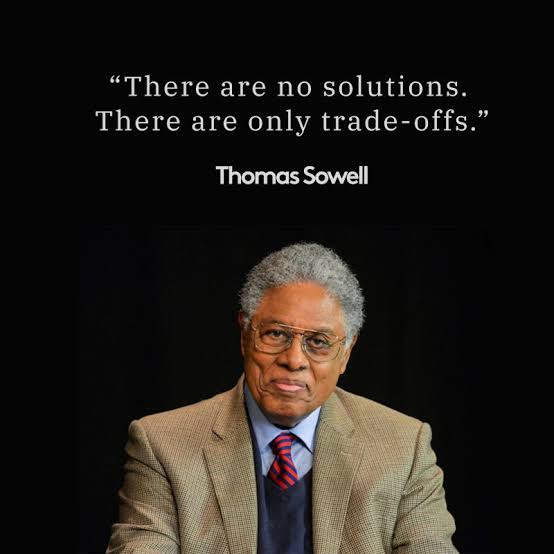
Thomas Sowell’s Basic Economics is one of my favorite economics books of all time. Why? Because it skips all the complicated formulas and charts you usually see in macro and microeconomics classes. I took both in university, and I still get haunted by those isoquants and isocost curves!
Anyway, Sowell is such a clear thinker, and one of the biggest takeaways from his book is this: “There are no solutions, only trade-offs.”
He explains that there are no perfect answers to problems. Every decision comes with a cost—when you choose one thing, you’re giving up something else.
For example, if a government raises the minimum wage, it may help some workers earn more—but it could also lead to fewer jobs or higher prices.
The hottest topic in the news right now is Trump’s tariffs. I’m not an economics expert, and I don’t claim to understand all the technical implications. But I do understand this: tariffs come with trade-offs. They might bring back manufacturing jobs to America, but they can also lead to higher prices for consumers.
In short, tariffs don’t solve the problem—they just shift the cost somewhere else.
